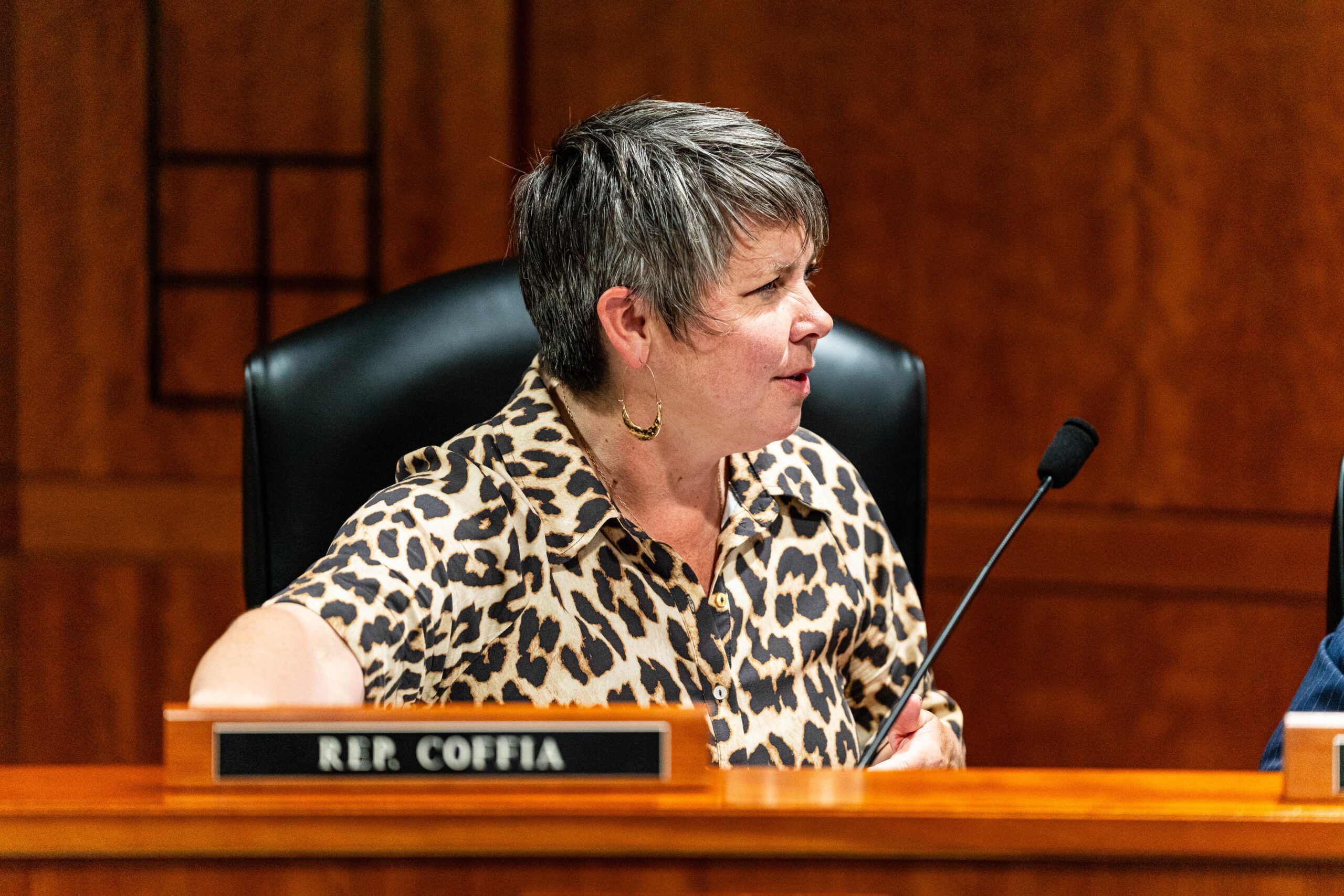Michigan House Democrats introduced legislation Thursday that would make it a crime for law enforcement officers to conceal their identity while on duty, a move aimed at restricting how federal immigration officers operate in the state.
House Bill [number not yet assigned], sponsored by Rep. Betsy Coffia, D-Traverse City, would prohibit officers from wearing face coverings or hiding agency identification while interacting with the public, except in narrow cases such as undercover investigations or hazardous situations. Violations would carry up to 90 days in jail and a $1,000 fine.
The proposal follows increased use of masks and plainclothes officers by Immigration and Customs Enforcement during immigration enforcement actions. The Trump administration has defended the practice, citing growing threats against ICE officers and their families.
“These officers are doing a tremendous job. They’re great patriots,” former President Donald Trump said in a July 11 interview with Fox News. “If you expose them because of statements like have been made by Democrat and others on the left… you put them in great danger, tremendous danger.”
Coffia said the bill is a response to what she called the emergence of “secret police” tactics. “Justice needs no masks,” Coffia said during Thursday’s announcement. “For the average person, these incidents look like violent kidnappings.”
House Speaker Matt Hall, R-Richland Township, has not yet commented on whether the Republican-controlled chamber will take up the bill.
The legislation mirrors a federal proposal from U.S. Sen. Elissa Slotkin, D-Mich., co-sponsored by Sens. Alex Padilla, D-Calif., and Cory Booker, D-N.J., which seeks to prohibit ICE, Border Patrol and other federal agencies from masking their officers’ identities.
The proposed Michigan law contains exceptions for undercover work, disease protection, or dangerous scenarios such as shootouts or hostage crises. But Coffia argued that ICE’s tactics have fueled fear among immigrant communities and created opportunities for criminals to impersonate officers.
Critics of the bill contend it undermines the safety of law enforcement officials tasked with enforcing immigration law and weakens federal authority within state borders.
If passed, the law would apply to all local, state and federal law enforcement officers operating in Michigan.



